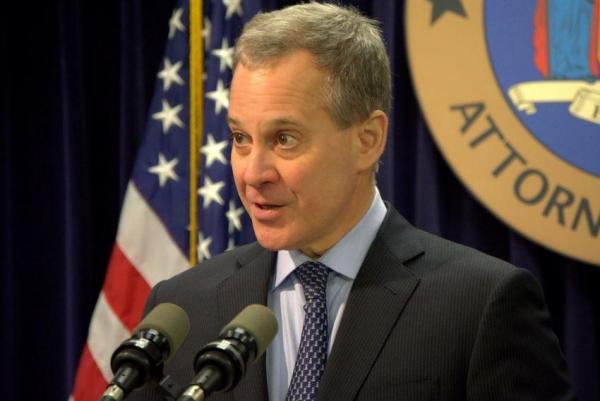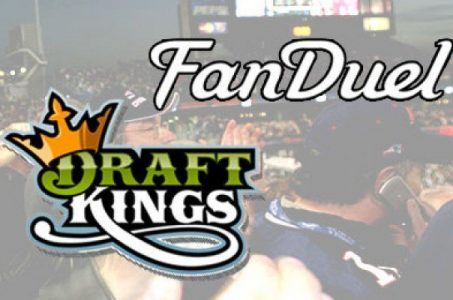Daily Fantasy Sports 2015: Hot, Hotter, and Feeling the Heat All At Once
Posted on: December 26, 2015, 09:00h.
Last updated on: November 4, 2015, 08:39h.

For most of 2015, Daily fantasy sports (DFS) was on a heater.
The DFS industry gained endless publicity for turning average Joes and Monday morning quarterbacks into millionaires, and it grew to become valued in the billions with no signs of slowing down.
Founders of the DFS movement, DraftKings and FanDuel, both reported record profits after NBC Sports invested in FanDuel and Major League Baseball became the first of the “Big 3” sports leagues to buy equity in one of the two giants, doing so in DraftKings. And more big names followed.
Kraft Services
DraftKings then got more than $375 million from some heavy-hitting investors, such as Patriots owner Bob Kraft’s Kraft Group, as well as a pair of $250 million ad contracts with Fox and ESPN. All the while, they worked out partnering deals with teams in the NFL, NASCAR and UFC.
Things were going so well that in August, The New York Times reported that between the two companies, they’d purchased more than $200 million in television, online and print ads, outspending the longtime kings of the ad-waves: beer and food. Yes, daily fantasy sports was suddenly in, and trending upward.
But while DFS has dominated in popularity and financial prosperity in 2015, there came a moment when the fairy tale rise of America’s exciting new non-gambling, skill-based obsession (or is it totally gambling? It’s sooo unclear right now) hit a major speed bump.
Because the latest trends in daily fantasy sports in the latter half of 2015 are those of epic uncertainty.
Countless copycat websites, popping up almost weekly, started stealing business away from DFS founders DraftKings and FanDuel, offering non-salary-cap-games or other unique features and bonuses to entice players to switch.
Insider Trading Allegations
And then a seemingly small scandal within the industry recently ballooned into far more when a DraftKings employee allegedly used inside information to win $350,000 on top competitor’s weekly FanDuel million dollar contest. The companies jointly instituted a ban on all employees gambling on fantasy sports of any kind going forward.
But it was too late. The damage had been done.
Suddenly, legislators in almost every state, along with the FBI and the New York Attorney General, were looking into the legality of daily fantasy sports and whether or not the games’ practices violated federal law. In fact, multiple lawsuits in different states were filed by players against the two DFS giants, alleging deceptive practices and false advertising, among other things.
Then the big shoe dropped: Nevada, the gambler’s paradise, became the first state to make all fantasy sites cease operations because, in the state’s Gaming Commission’s official review, DFS was deemed to be gambling and not luck and therefore, illegal for unlicensed online operators.
Then the other shoe dropped as both DraftKings and FanDuel reported that they experienced their slowest weekends yet in October, right in the heart of the NFL season. That news came one week after it reported its busiest, so it appears the DFS consumers may be pulling back.
It’s unclear what the FBI’s report will find and what charges, if any, it may levy, but at the end of the ensuing legal battle, we may just see daily fantasy sports join online poker in an effort to become both regulated and legalized, whether state-by-state or nationwide.
Related News Articles
FBI Used Taxpayer Funds in Undercover Legends Sports Sting
Daily Fantasy Sports Sites Sued for Fraud Over “Insider Trading” Scandal
Most Popular
Cracks Emerging on Las Vegas Strip Says Analyst
Casinos That Were Never Casinos
Most Commented
-
End of the Line for Las Vegas Monorail
— April 5, 2024 — 90 Comments -
Mega Millions Reportedly Mulling Substantial Ticket Price Increase
— April 16, 2024 — 9 Comments -
Sinclair Broadcast Group Selling 7.91 Million Bally’s Shares
— April 12, 2024 — 5 Comments
















Last Comment ( 1 )
I believe that is the price that they have to pay for being too famous. It happens not just to daily fantasy sports but to anything popular as well. It was an awesome start for them but as the year comes to an end there are tons of scandals and issues that they are facing but as the saying goes, there is always a rainbow after the rain so I believe they will surpass all the bad publicity and rise again and will be even more popular next year. Their expo that I will be attending will help them rise up again and will prove how famous they are. All the fantasy sports fans can register at http://dfse.net and yes I will be there! See you all guys! J